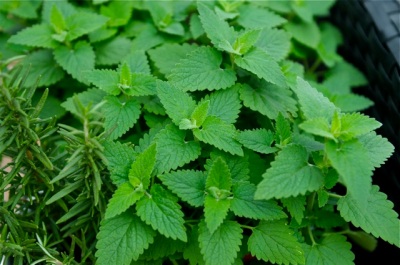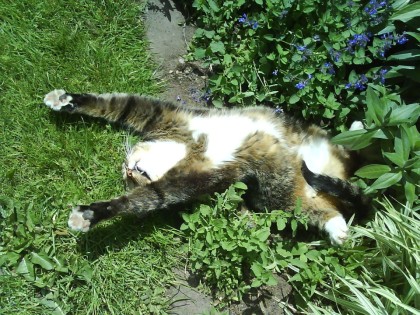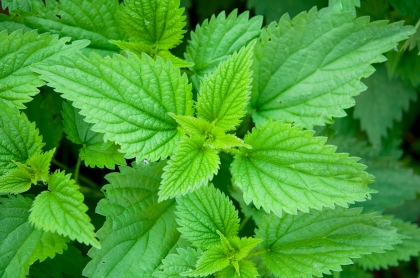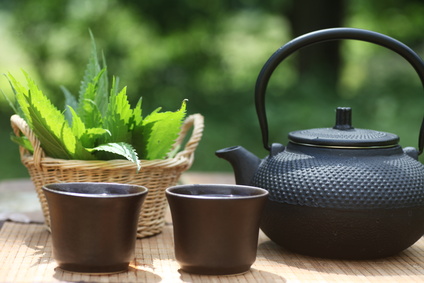 A member of the mint family, Catnip reveals itself as one of the most soothing and mildest wild medicine available today. Recorded usage of Catnip dates back to the 13th Century, where people used Catnip as a medicine cure-all. It comes to no surprise that even some practitioners today still take Catnip for pain, stress, flatulence, restlessness, and nervousness.
A member of the mint family, Catnip reveals itself as one of the most soothing and mildest wild medicine available today. Recorded usage of Catnip dates back to the 13th Century, where people used Catnip as a medicine cure-all. It comes to no surprise that even some practitioners today still take Catnip for pain, stress, flatulence, restlessness, and nervousness.
MEDICINAL PROPERTIES:
Most popularly known for its antispasmodic, relaxant, calming, and sedative properties, Catnip is also strongly anti-fungal and anti-bacterial, as well as having anti-inflammatory, astringent, antidiarrheal, carminative, diaphoretic, emmenagogue, and nervine properties. Catnip also contains significant amounts of Vitamin A and B Vitamins.
OTHER BENEFITS:
CHILDREN’S AILMENTS
One of the strongest allies to children, Catnip may be used to treat high fevers (as it is known to relax the body while increasing perspiration), to settle the stomach and soothe children when they are upset. Catnip is the go to herb for children when they are wound up and overwrought. It has a gentle tonic action that helps to calm a child. Catnip infusions and baths help relieve achy muscles that accompany flu and illness. It can also be used externally on the stomach of colicky babies to relax the stomach and help them sleep. Due to its sedative and relaxing properties, Catnip is the perfect remedy to help children relax and sleep better.
DIGESTIVE ISSUES
Catnip is a mild digestive herb with excellent antispasmodic properties. It is used for stress, tension, and anxiety and is well suited to digestive conditions where these play a contributory role. It can be used for gas, flatulence, dyspepsia, and Irritable Bowel Syndrome. It may also help ease menstrual cramps.
NERVOUSNESS
Catnip, due to its soothing and relaxing properties, helps soothe problems caused by nervousness including anxiety, indigestion and insomnia. Used for its overall calming effect on mind, body and even stomach, many of its uses are stress relieving in one form or another.
PEST REPELLENT
Catnip effectively repels insects, according to a study published by the American Chemical Society in August 2001.The chemical Nepetalactone that gives catnip its strong scent repels mosquitoes 10 times more effectively than DEET, the compound used in most commercial bug repellents. While the study researched catnip as an essential oil, catnip tea retains some of the strong aroma of the leaves, so may keep bugs away. Alternatively, use catnip essential oil as a bug repellent.
 CATS
CATS
It is quite well known that cats go crazy for catnip. This is because the essential oil has an aroma that is similar to that of the pheromones that cats secrete. Scientists have ascertained that the feline reaction to Catnip is due to its content of Nepetalactone.
SCIENTIFIC STUDIES
Rigorous scientific study on Catnip has not been conducted, but according to the NYU Langone Medical Center, Nepetalactone is the active ingredient thought to be responsible for the calming effect and stress relieving properties reported from the human consumption of catnip. This ingredient is also thought to be the reason catnip is so effective at treating stomach upset.
Steven D. Ehrlich, N.M.D. of the University of Maryland Medical Center writes that catnip tea may benefit patients with bulimia nervosa and infant colic. Bulimia nervosa involves eating large amounts of food, then purging or vomiting. Colic occurs when infants cry excessively at about the same time of day at least three days a week, and may result from gas or food intolerance.
The University of Michigan notes that catnip also contains mucilage properties, which can help suppress coughs.
COUNTER-INDICATIONS:
This plant should not be used during pregnancy as it contains Pugelone – which is potentially teratogenic.
HOW TO USE:
Infuse for 15 minutes, or the leaves can be dried and used in the kitchen for culinary uses.
For more information, and credits go to:
http://www.herbwisdom.com/herb-catnip.html
http://wellnessmama.com/4525/catnip-herb-profile/
http://www.livestrong.com/article/511243-benefits-of-catnip-tea/
http://www.motherearthnaturalhealth.ca/catnip-cataire/

